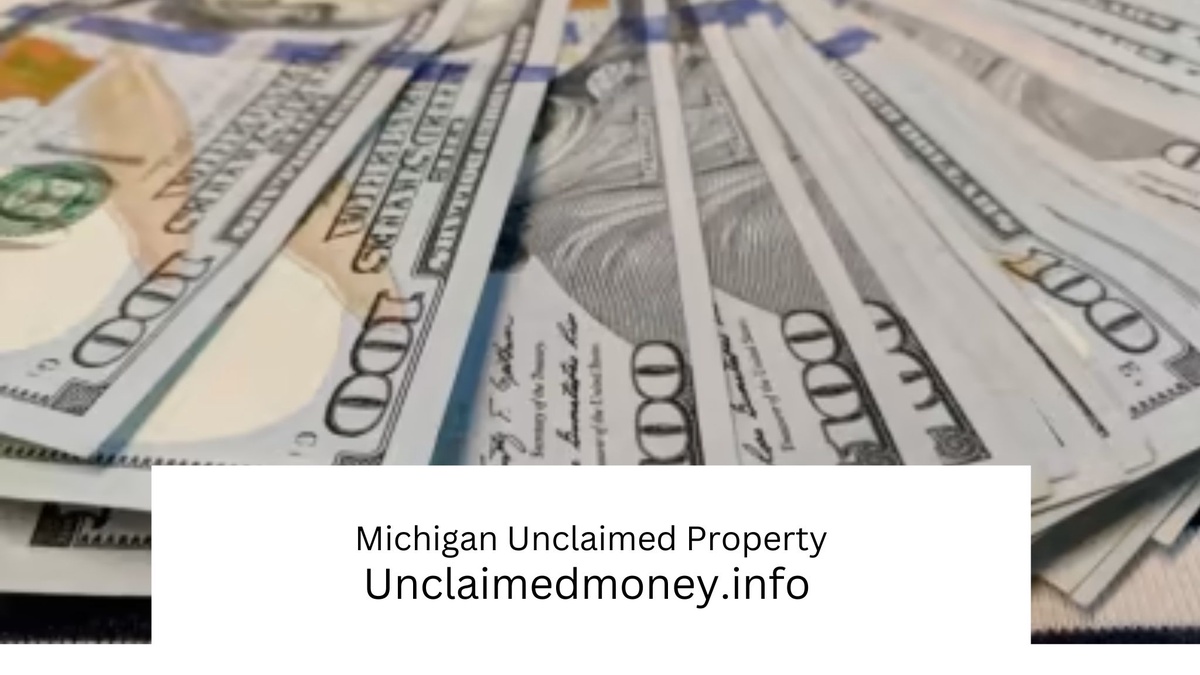Michigan unclaimed property: Unclaimed cash could be in the possession of the Michigan Department of Treasury. The Treasury has a website that tracks unclaimed assets. It includes information about dormant bank accounts and uncashed cheques, as well as valuables in safe deposit boxes or stock certificates.
These properties were deemed abandoned and unclaimed by any bank or company that had been entrusted with them. According to law, they are handed over to the state. When they are legally claimed, the Michigan Department of Treasury takes custody of the assets and returns them to their owners or the owners' heirs.
In large part, the budget cuts caused by the coronavirus outbreak have resulted in US states experiencing revenue shortfalls for 2021. The figures (an estimate of all 50 states according to a Center on Budget and Policy Priorities article in November 2020) illustrate some of the financial damage state budgets have suffered. They don't reflect the higher costs of fighting the virus or the growing demand for state services. This combined with a generally poor economy and the decrease in income from state taxes has made many states look for additional revenue. As a result, some state governments are considering their unclaimed property laws to solve their budgetary problems.
State governments are aggressively trying to tap untapped revenue. States increase the number and complexity of unclaimed property audits.
This increased enforcement is costing businesses billions in liability and non-compliance penalty. Every company must be aware of all unpaid property laws, not only in the state where it is incorporated but also in any state in which they do businesses. They should also ensure they adhere to all existing and future requirements.
Items That Are Subject To Special Attention By The State Governments
Periods Of Dormancy
State revenue growth has been made easier by reducing the dormancy period. In many states, the five year dormancy period was for most unclaimed properties. Recent changes have seen a decrease in the 5-year period for some property types by a number states (Missouri and Michigan, New Jersey, South Dakota and South Dakota to name just a few). The National Association of Unclaimed Property Administrators has a comprehensive list of state dormancy period by property type.
Property Types That Are Subject To Unclaimed Property Laws
Items that fell under the unclaimed property laws were traditionally unclaimed wages and bank account deposits, credit accounts, credit balances or dividends. Uncashed vendor payments also applied to these items. Some states have recently increased the scope of the property types that are covered under their Unclaimed Property statutes. This was done either by changing the statute or interpreting the current provisions. If they are not used during the dormancy, items may now be considered "unclaimed property".
-
The Stored Value Card ranges from gift cards to prepaid calls cards, incentive cards and even HSAs (Health Savings Accounts) and transit fare cards.
-
Consumer Rebate checks
-
Settlements for Class Actions where the party has not cashed their proceeds
-
Digital Property is online accounts that are connected to social media websites. You can redeem promo codes for digital content and merchandise. Point award systems also exist.
-
Magazine subscriptions or coupons that are not used
Audit Frequency
Many states have used third-party auditors to increase their auditing. For unclaimed property that they uncover, these auditors are often paid on a contingent basis (12%) Auditors who want to maximise their commissions may be too zealous in enforcement of statutes. To make matters worse, many states that employ third-party auditors have no procedures or safeguards to limit the incentive to inflate their liability assessments. They also do not offer protection to the companies against which they are made.
"Look back", Periods And Estimated Liability
There is no statute of limitations in most states for companies who have not yet filed an unclaimed asset report. Even companies who have previously filed can be asked for proof that their filings are complete and accurate. Many states have a "look back" period of 20 years or longer. This is much longer than the time most companies keep their records.
In some cases, states may use limited data from selected years to calculate a company’s liability if no documentation is available. Unpaid property holders bear the burden of proof that the statutes have been followed.
Excessive Penalties, Interest And Punishment
Exorbitant penalties or interest are often charged by states to prevent them from complying with their unpaid property statutes. Delaware penalties (SS 1183) are 50% of unclaimed property. If they believe fraud was committed, 75% of these penalties can be applied. The interest rate is 12% from when the property was due until it is paid.
How To Make Sure You Are Compliant With Unpaid Property Statutes
It is best to hire an attorney or company that specializes in Unclaimed Property Law. This will ensure you are compliant and risk-free. You are responsible for filing reports if your company sells outside of the state in which you are incorporated.
Read Also: Indiana unclaimed property
The Treasury Has Some FAQs On unclaimed Property:
How Do I Stop My Property Being Given To The State.
Here's a list of ways you can prevent your property from being handed over to the state.
-
Keep all records current and accurate.
-
Notify property owners when you move or change addresses.
-
Actively manage your accounts by initiating activities, and not only the accrual or interest.
-
Cash all checks.
-
Notify your family members or trusted friends about the location of financial records, such as bank accounts and safe deposit box locations.


No comments yet